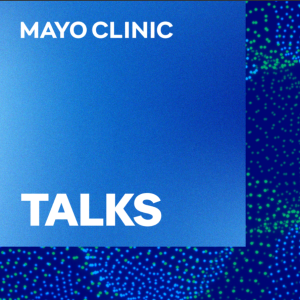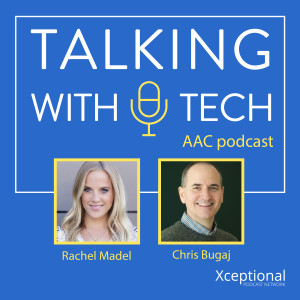This week, we share the recording of Chris and Rachel’s recent webinar with aaccessible.org in which they answer questions related to AAC assessment, the benefits of a team-based approach to assessment, selecting motivating assessment materials, and more!
Before the interview, Chris and Rachel discuss Chris’s recent discovery that a student he worked with who was very important for him professionally had passed away. They share about some of the challenges anyone can face working with people who have complex medical needs, including people passing sooner than we expect. They also highlight the importance of teaching students about their bodies and how to say they feel sick or pain and where things hurt. It can also be a difficult balance with encouraging communication when the family is struggling just to keep the child healthy.
Key ideas this week:
🔑 There is little logic to the traditional “three trials” AAC assessment - if you choose only a low tech option, it is potentially wasting everyone’s time. If you choose to trial three robust AAC systems, how to you pick which one is first? How do you determine that the trial is long enough to make a justified decision? A team based considerations approach to assessment that bypasses the three trials can be much more effective.
🔑 When we are feature matching to determine if an AAC device is a good choice, a major consideration should be what AAC apps the team is already comfortable with. While we can always choose a different option, people are more likely to support a device they are already comfortable with.
🔑 A team-based approach to assessment is really helpful for building capacity with your team. If we have an expert model and don’t meet with the team to choose the device, then they will often not take ownership of implementation. If they are involved, often the team will be more likely to embrace the AAC tool and the implementation strategies.
🔑 When you find that a robust AAC system is not working for a student, it is most likely that you chose the correct device and the problem is related to issues related to modeling, training, and implementation.
Visit talkingwithtech.org to access previous episodes, resources, and CEU credits that you can earn for listening to TWT episodes!
Help us develop new content and keep the podcast going strong! Support our podcast at patreon.com/talkingwithtech!
More Episodes
Chantelle Hutchinson: Supporting Adult AAC Users with Acquired Brain Injuries
 2024-05-09
2024-05-09
 1.8k
1.8k
Tiffany Joseph (Part 2): The Use of Gestalts in Acquiring Language as a Part-Time AAC User
 2024-05-03
2024-05-03
 2.2k
2.2k
Tiffany Joseph (Part 1): Educating and Supporting AAC Users as a Part-Time AAC User
 2024-04-26
2024-04-26
 2.1k
2.1k
Bob Sagoo: Empowering an AAC User as a Parent
 2024-04-17
2024-04-17
 2.0k
2.0k
Beth Moulam & Joanna Holmes: Recognizing AAC Users as Multimodal Communicators
 2024-04-10
2024-04-10
 2.2k
2.2k
Daniel O'Connor & Bradley Heaven: Creators of All Access Life, an Adaptive Product Nonprofit
 2024-04-03
2024-04-03
 2.2k
2.2k
Breea Rosas: Neurodivergent Affirming Practices for School-Based Practitioners
 2024-03-13
2024-03-13
 3.3k
3.3k
Kelley Coleman - Pushing Back Against an Incorrect AAC Evaluation
 2024-03-08
2024-03-08
 2.7k
2.7k
Heidi Rabe - Supporting Switch Use for Clients with Complex Physical Needs
 2024-02-29
2024-02-29
 2.7k
2.7k
Caitlin Armstrong: Writing a Persuasive AAC Initiative Proposal for School District Admins
 2024-02-22
2024-02-22
 2.1k
2.1k
Rachel Madel & Chris Bugaj: ATIA Recap 2024 (Part 2)
 2024-02-15
2024-02-15
 2.0k
2.0k
Rachel Madel & Chris Bugaj: ATIA 2024 Recap (Part 1)
 2024-02-08
2024-02-08
 2.3k
2.3k
Mercy Wolverton: Solving Real-World Problems with 3D Printers
 2024-01-31
2024-01-31
 1.9k
1.9k
Aaron Marsters: Supporting Assistive Technology for Students on US Military Bases Across Europe
 2024-01-24
2024-01-24
 2.2k
2.2k
Talking With Tech's 300th Episode/1 Million Downloads Celebration
 2024-01-18
2024-01-18
 2.0k
2.0k
Meredith Hankins, Morgan Payne, & Susan Lee - Creating a ”Girl Talk” AAC Social Group
 2024-01-10
2024-01-10
 2.4k
2.4k
Kimberly Zajac: Creating Fun & Interactive Projects That Meet Learning Objectives & IEP Goals
 2024-01-05
2024-01-05
 2.7k
2.7k
Emma Fischer - Preparing for a New Career in Assistive Technology
 2023-12-13
2023-12-13
 2.7k
2.7k
Otto Lana: Autistic Advocate, Writer, Actor, and AAC User
 2023-12-06
2023-12-06
 2.3k
2.3k
Rémi Morin - Creating the Canadian-French Version of LAMP:WFL as a Parent
 2023-11-26
2023-11-26
 2.7k
2.7k
Create your
podcast in
minutes
- Full-featured podcast site
- Unlimited storage and bandwidth
- Comprehensive podcast stats
- Distribute to Apple Podcasts, Spotify, and more
- Make money with your podcast
It is Free
You may also like

Mayo Clinic Talks


The Saad Truth with Dr. Saad


Positive Thinking Mind


The Jordan B. Peterson Podcast


The Mel Robbins Podcast


- Privacy Policy
- Cookie Policy
- Terms of Use
- Consent Preferences
- Copyright © 2015-2024 Podbean.com



 iOS
iOS Android
Android